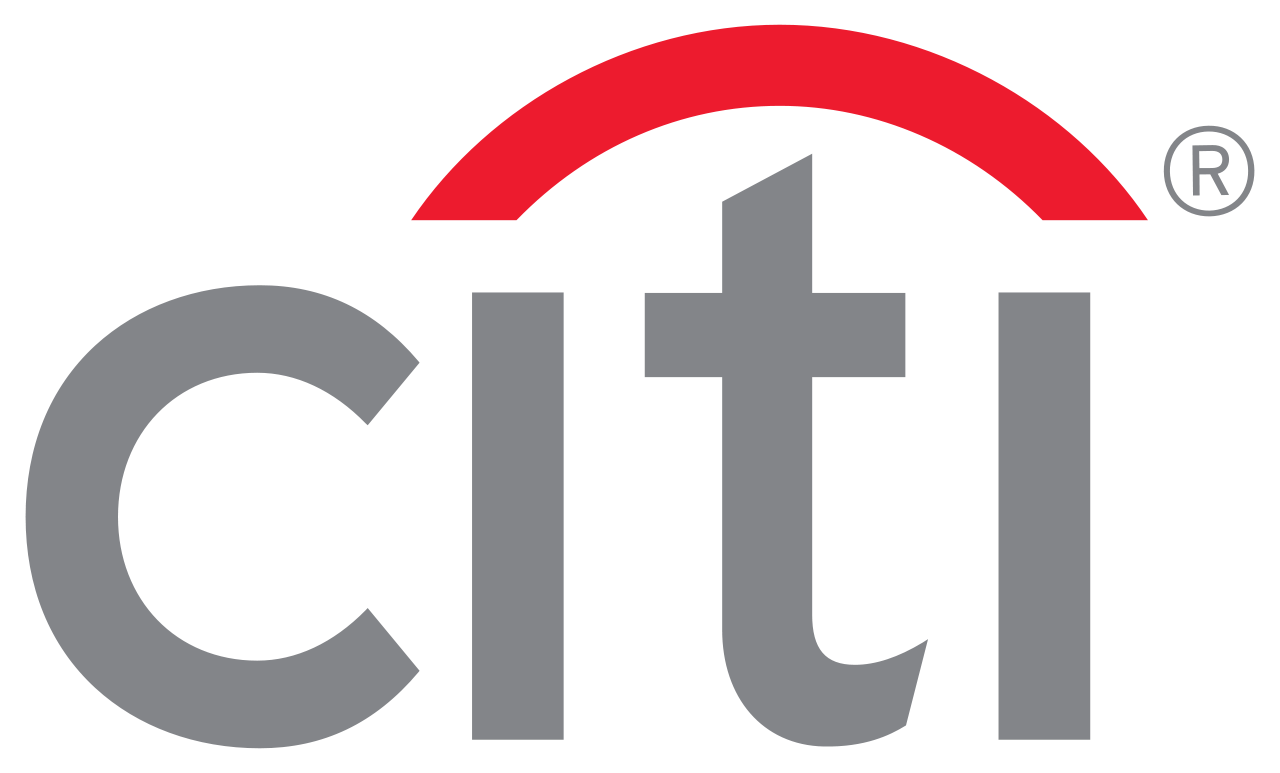Entrepreneurs Are Again Voting for the Best and the Worst Act of the Year
18.03.2013Company: Deloitte
One year on, Czech entrepreneurs are again selecting the best and worst legislative acts of the year. For the ACT OF THE YEAR survey, over 200 significant Czech business firms engage actively and also this year legal regulations adopted in the prior calendar year that have a significant impact on the Czech business environment were nominated for the survey.
The goal of the survey is to foster discussion among Czech entrepreneurs, politicians and the professional public on the quality of legal regulations. The fourth year of the prestigious competition is being held by Ambruz & Dark/Deloitte Legal law offices in co-operation with their partners.
“The past year brought about a wide range of legislative changes with a significant impact on Czech entrepreneurs. Apart from the Amendment to the Public Procurement Act and the revolutionary re-coding of private law, the year-end was most interesting as the Czech Parliament voted on reforms, tax changes and church restitutions. Therefore, it will be interesting to see again what legal regulations will be selected by entrepreneurs from the shortlist in respect of the regulations’ impact on their business,” says Tomáš Babáček, Chairman of the Survey’s Nomination Committee and attorney at Ambruz & Dark/Deloitte Legal, adding: “Even more important will be to see the competition between those general aspects of legal regulations that we try to highlight through our nominations and on which we facilitate the voting. As the whole survey’s sense is to cultivate and enhance entrepreneurs’ common view of what is essential for them in the legal environment and what is rather marginal. Moreover, the survey seeks to draw attention to what entrepreneurs should try to support by their activities, among other things also in relation to state administration.”
When preparing the nominations, the Nomination Committee also drew into consideration tips sent in by the general public through the www.zakonroku.cz webpage and via Twitter. In determining five nominations for each of the “Act of the Year” and the “Pasquil of the Year” categories, the Committee took into consideration principally the expected practical impact and Czech entrepreneurs’ experience relating to the application of particular legal norms. The Committee that includes thirteen members comprises primarily legal professionals from across the legal branch who are mostly attorneys and corporate lawyers, and other personalities.
“I am glad that this year the Association of In-House Lawyers could participate in the Act of the Year survey, as corporate lawyers aim for cultivation of the legal environment, of which the quality of legal regulations is one of the pre-requisites. The survey helped to draw attention to the fact that there is a diversity of opinions. This can be seen from the opinions of my colleagues, who have participated in the debate and whose nominations varied and sometimes mutually differed. Personally, I realised that there is one category that is missing, ie the “Non-Adopted Act of the Year”. I feel the lack of an Act on State Service. And I dare to say that I am not the only person in this respect,” said the President of the Association of In-House Lawyers and the Head of the Legal Section of Pražská energetika, Marie Brejchová.
“It was really hard to select among regulations that frequently represent both a step forward to the simplification of the legislation framework for the business environment, and at the same time are also a step backward. There are many new norms with good intentions; however, the form or their realisation through individual adopted regulations is worse. Therefore, arriving at a conclusion as to whether the relevant norm’s contribution is positive or negative is difficult. Moreover, there is one thing that was clearly reflected by all panel participants – the opinion that any contribution to eliminate useless bureaucratic burdens for business is a step in the right direction and that in future legislators should pay attention to the quality of how such amendments are prepared and, if possible, that they are prepared enough in advance,” adds another member of the Nomination Committee, Head of the Legal Department of Siemens, Richard Baček.
Under the rules of the ACT OF THE YEAR 2012 survey, generally-binding legal regulations of the Czech Republic and the European Union that came into effect in the prior year, such as the following: constitutional acts, individual acts, regulations issued by ministries, governmental decrees, and EU guidelines and provisions, can be nominated. The nominations can also relate to new international agreements that have an effect on the business environment in the Czech Republic.
In the category of “Worst Legislative Act of the Year”, voters can select from legal regulations that ceased to be effective in the given year, principally because they were cancelled by the Constitutional Court of the Czech Republic or the Court of Justice of the European Union. The authors of the nominated legal regulations presented in the survey include individual regulations’ initiators and/or those who have significantly contributed to the given regulation’s adoption.
The complete nominations and the results of the votes for the winners in the categories “Act of the Year” and “Pasquil of the Year” can be found on the Internet page www.zakonroku.cz. The voting procedure will be completed on 10 May 2013 and six days later (16 May 2013) the complete results will be published on the survey’s webpage.
The survey’s partners in this year are the Association of Small and Medium-sized Enterprises and Crafts of the Czech Republic, the British Chamber of Commerce, the Business for Society Platform, Czech Institute of Directors, the Confederation of Employment and Business Unions of the Czech Republic, the Pro Bono Alliance and the Association of In-House Lawyers of the Czech Republic (UPP ČR). The media partners are as follows: the C.H. Beck publishing house and the Beck-online legal information system, CSR Forum, Ekonom, Hospodářské noviny, iHNED.cz, Právní rádce, ProbyznysInfo.cz, PubliCon and Trade News.
In the best (and the worst) legislative act for the business environment in the Czech Republic for the year 2011 survey, the Act of the Year title was awarded to an EU guideline that significantly limits the delayed settlement of invoices as part of trade relations and the “Pasquil of the Year” was the State’s unsystematic approach in penalising the use of the off-the-books method (Czech: “švarcsystém”).
The nominees for the ACT OF THE YEAR 2012 are the following legislative acts:
The ACT OF THE YEAR category:
1. SUPPORT FOR OUT-OF-COURT DISPUTE RESOLUTION (the MEDIATION ACT)
Act 202/2012 Coll., on Mediation
Author: European Commission – General Directorate for Justice and Home Affairs/Ministry of Justice
A series of the implemented measures may lead to the establishment of mediation in the Czech Republic as one of proven out-of-court methods for dispute resolution (determination of proceeding deadlines in the course of mediation, list of mediators’ responsibilities, mediation oversight). As opposed to court or arbitration proceedings, under mediation proceedings one of the disputed parties is not imposed a solution against its own will, but the solution is rather a connection between both parties’ interest. As such, parties with a constructive approach are offered another alternative to achieve a dispute’s solution that is efficient and the costs of which are low.
2. UNBLOCKING CHURCH PROPERTY THAT ENABLES ADMINISTRATION OF THE PROPERTY
Act 428/2012 Coll., on Property Settlement between the State and Churches and Religious Societies
Author: Ministry of Culture
Through the act, church property was unblocked, which after many years will finally enable proper care of this property. Additionally, the Act will contribute to the development of many municipalities, enable investments made by the business sector, municipalities and regions, and development projects undertaken by individual churches as such. Despite the fact that the Act may be problematic in certain respects, the prior state of affairs was unsustainable from a legal and economic perspective, and most un-economical.
3. CONCEPTUAL EXPANSION OF LIBERTY OF CONTRACT AND INTELLIGIBILITY OF REGULATIONS (RE-CODIFICATION OF PRIVATE LAW
Act 89/2012 Coll., the Civil Code, and Act 90/2012 Coll., on Business Corporations
Author: Ministry of Justice
The new Civil Code and the relating regulations enhance the contractual parties’ freedom of contract and the protection of free will (interpretation principles, relative vs. absolute invalidity of legal acts, form of legal acts, dispositive vs. cogent provisions, internal organisation of business corporations, etc). Also, the taxonomy of the Code and the removal of the double-tracked direction of civil and business law will, despite possible teething problems, lead to a general simplification in applying private law.
4. TOOLS IMPROVING THE FUNCTIONING OF THE INTERNAL EU MARKET (INTERCONNECTION OF COMMERCIAL REGISTERS)
Directive 2012/17/EU, amending particular directives related to the interconnection of central, commercial and company registers
Author: European Commission – General Directorate for Internal Market and Services
In-country commercial registers will be interconnected into a unified interface so that anyone can verify information on their business partners from other EU countries with ease. Similarly to the adoption of a unified European patent, this is a classic example of a tool that may improve the utilisation of the EU internal market’s potential. Moreover, its full utilisation still needs to be ensured today when some EU countries are facing economic problems and firms’ ability to expand their business activities to other EU countries under reasonable costs may be crucial for their sustainability and maintenance of employment.
5. EXTENSION OF TRANSPARENCY IN PLACING PUBLIC PROCUREMENT CONTRACTS
Act 55/2012 Coll., which amends the Act on Public Procurement
Author: Ministry for Regional Development
The Amendment is meant to enhance the degree of an entrepreneur’s and the general public’s awareness of the planned, implemented and completed tender procedures, the content of concluded contractual documentation and its subsequent compliance, as well as the role of sub-contractors. The results arising from the Amendment will first be seen in practical life (among other things with regard to the exceptions enabled by the Act), but in this respect the Amendment is definitely a step in the right direction.
The PASQUIL OF THE YEAR category:
1. ADOPTION OF KEY ACTS “AT THE ELEVENTH HOUR” (THE DECEMBER TAX PACKAGE)
Act 500/2012 Coll., on Amendments to Tax, Insurance and Other Acts Related to the Reduction of Public Budget Deficits, and Act 502/2012 Coll., which Amends the Value Added Tax Act
Author: Ministry of Finance
The uncertainty relating to the percentage of the value added tax rate had an impact on the absolute majority of Czech businesses. Many companies had to prepare their budgets, price lists and contracts in multiple versions and be prepared to change their strategies and plans for 2013. The uncertainty (not only in the area of tax) has a negative impact on the economy, which is even greater than the determination of the tax burden as such. What is more, the reasons for this uncertainty are not of an economic or technical nature, but they are attributable to the functioning of the political system.
2. INADEQUATE BUREAUCRATIC PATCH ON THE STATE’S OVERSIGHT FAILURE (OBLIGATORY ORIGINATION CERTIFICATES FOR ALCOHOL)
Governmental decree 317/2012, based on which the form of documents on the origin of certain kinds of alcohol, distillate and other kinds of spirit is determined
Author: Ministry of Agriculture
Beverages containing poisonous methyl alcohol got to circulation due to the criminal activity of a number of subjects and the fundamental failure of state oversight. The new regulatory measure (obligation to issue and pass documents of origin among individual food industry businesses) transferred, to a certain degree, the costs of resolving the State’s failure to businesses in the food sector, all across the industry and without any limitation of effect. Moreover, for the time being it is not apparent that the remedy to this state of affairs is directed intensely enough in the areas that caused this situation.
3. INCREASINGLY GREATER COMPLEXITY INSTEAD OF SUPPORT FOR THE PROPER IMPLEMENTATION OF REGULATIONS (AMENDMENT TO THE PUBLIC PROCUREMENT ACT)
Act. 55/2012 Coll., through which the Public Procurement Act is amended
Author: Ministry for Regional Development
The results arising from 16 amendments to this six-year-old Act is a situation in which both clients and suppliers are facing a tangible problem in understanding the responsibility bundle. Moreover, legislators are planning the preparation of another amendment that is supposed to adjust the new deficiencies. Paradoxically, as the case is in relation to other regulations, such continuous improvements in accuracy and tightening lead to lower legal certainty. As such, both the State and the private sector should rather pay attention to the proper implementation of the existing regulations by extending the number of good examples and duly eliminating non-compliance. However, the increasing complexity of the regulation itself leads to limited competition between public contracts, and additionally to the inefficient use of state funding.
4. REPEATED POSTPONEMENT OF THE EFFECTIVENESS OF REGULATIONS ALREADY ADOPTED
Act 463/2012 Coll., which amends Act 266/2006 Coll., on Accident Insurance of Employees
Author: Ministry of Labour and Social Affairs
The effectiveness of the Act on Accident Insurance of Employees from 2006 has been postponed repeatedly. However, once a regulation is duly adopted, it is expected to be functional, not only with regard to the effectiveness of the “legislation service” for which citizens pay, but also with regard to the respect for law which we need. As such, the parallel between the developments regarding the Service Act from 2002 is apparent.
5. TRANSFER OF RESPONSIBILITY FROM THE STATE TO PRIVATE ENTITIES (UNRELIABLE VAT PAYERS)
Act 502/2012 Coll., through which the Value Added Tax Act is amended
Author: Ministry of Finance
Pursuant to the Amendment, recipients of taxable performance are liable for VAT payments in the event that the provider of the taxable supply is declared unreliable or in the event that the recipient makes the payment to another account of the provider than the account registered with the Taxation Authority. As such, the State transfers a portion of its own responsibility for tax withdrawal to recipients, which includes the relating costs.
Additional Statements Made by Members of the Nomination Committee Regarding the Selection of the Final Nominations:
Monika Čírtková, Attorney: “In selecting the nominated regulations, it clearly showed that a number of legal norms are of ambivalent nature – we find here both the good and the bad aspects. Often an initially-good idea gets implemented imperfectly, as a result of which legal regulations suffer from unbalanced quality. Moreover, the nominations illustrate the traditional weaknesses of the Czech legislative process, ie putting off the resolution of various issues, adoption of acts at the last minute, and lack of concept and the inappropriate timing or aim of legal norms. In my opinion, the crucial question for future discussion is the degree to which the State is to intervene in private legal relationships and regulate various areas of both the life of citizens and businesses.”
Štěpán Holub, Holubová – Attorneys law office: “From the nominations for the Act of the Year we can see a number of interesting aspects. Firstly, the nominated regulations principally include conceptual changes that have long-term importance for enhancing the quality of legal certainty, and the transparency and intelligibility of the legal environment as a whole. As such, in 2012 the long-expected system could be implemented all across the field of private law. Secondly, the unblocking of church property will ensure that a great part of our country’s soil can be used to its full economic capacity. It is interesting to see that the rest of the nominated legislation acts of success include regulations originating in the European Union, such as the Act on Mediation or the Directive on the Interconnection of Commercial Registers.”
“Among the nominations for the “Pasquil of the Year” we can see that the distress caused to the addressees of legal regulations is attributable to the fact that regulation authors do not pay sufficient attention to the addressees. Sometimes, the short preparation time for a legal norm is a problem, ie too-short periods between regulations’ validity and their publication, which is the moment from which individual actions taken are to comply with the given regulation. An equally large problem is non-conceptual acts, such as repeated postponements of legal norms’ effect or solutions made too hastily, such as the introduction of obligatory origination certificates for alcohol.”







